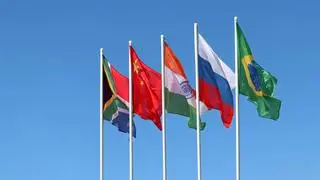India’s Mines Ministry has upped the ante as it eyes securing supplies for critical minerals specially lithium and cobalt, among others.
Beyond getting into global alliances and participating across select projects; discussions are currently underway with Lat-Am nations, like Argentina, Chile and Bolivia (also called global Lithium Triangle), and Australia for acquisition of mines. New connections are being developed with Eastern region countries like Mongolia.
State-run Khanij Bidesh India Limited (KABIL), a JV company set up by Mines Ministry, with equity participation of NALCO, HCL and MECL, is focusing on sourcing of lithium and cobalt across Australia, Argentina and Chile, a senior Ministry official said.
Earlier in 2023 India made public its list of 30 critical minerals, which included ones like lithium, cobalt, nickel, copper, tungsten, titanium, vanadium, REEs (rare earth elements), among others. The list was subsequently brought down to 24.
Applications across these minerals spread across space industry, electronics, communications, energy sector, electric batteries and their self reliance forms a corner stone in net-zero emission commitment of India.
These critical minerals form the cornerstone of India’s transition to green energy solutions; with lithium being the most sought after. Called “white gold”, the alkaline metal is used primarily in energy storage solutions apart from finding usage across segments like mobile phones, lithium-ion battery making, in EVs, among others.
India is completely import reliant for lithium sourcing, most of which comes from China. The (import) bill runs close to ₹24,000 crore annually and is only expected to go up for some more years considering rising popularity of EVs and the green transition thrust.
Bullish on Argentina
The Mines Ministry is currently on the verge of finalizing an agreement to acquire five lithium blocks for exploration and development in Argentina. It is in advanced talks with CAMYEN – an Argentinian state-owned miner for finalising supply agreements (including development and commercialisation of mines).
An MoU was signed in December 2020 for institutional co-operation for joint development of lithium mining projects; and KABIL is now looking at exploration and development of these blocks in Catamarca province of Argentina. It has signed an exploration and development agreement already.
The Board of Directors of KABIL approved the “Draft Exploration and Development Agreement” with CAMYEN and the proposal for opening of branch office in Catamarca was cleared in June 2023.
Projects in Australia and Chile
India’s KABIL is already carrying out due diligence for five projects in Australia, that include three for cobalt, and two for lithium. Short-listing of these projects were done and India’s Mines Minsitry roped in PwC (Australia) to track “investable projects” there.
Under the MOU signed between KABIL and Critical Mineral Office (CMO), Department of Industry, Science and Resources (DISR) of the Australian government, in March, 2022, joint due diligence and further joint investment opportunities in lithium and cobalt mineral assets of Australia are being looked into.
“Detail due diligence of the projects started. (And) both sides are actively pursuing for expediting the due diligence process through regular engagement at various level,”a Mines Ministry official told businessline.
In case of Chile, a non-disclosure agreement was signed with ENAMI, a State-owned mining company of the Lat-Am nation in May so as to evaluate possible business opportunities around “exploration, extraction, processing and commercialisation of lithium”.
Global Alliances
India has not shied away from global alliances either, as it looks to de-risk itself from a China-dominated supply-chain.
The Minerals Security Partnership, which is led by the USA, aims to secure supply chains of critical minerals; and India became its 14th country in June. A list of 19 Mineral Security Partnership projects has been shared for consultation, and India has apparently expressed interest in participating across three such projects.
The Comprehensive Economic Cooperation Agreement (CECA) with Australia, signed last year, “offers an opportunity” in mining, extraction and processing technologies of critical minerals. Some five rounds of India – Australia CECA Negotiations have been held on the “ Critical Mineral track”.
Pushing domestic supplies
The search for critical minerals is not restricted to foreign shores.
In fact, India has been pushing for greater availability and self reliance across its critical minerals within its borders.
Ministry documents show some 358 mineral exploration projects taken up by Geological Survey of India in 2023-24 (till December), while 51 mineral exploration projects worth ₹420 crore were approved by National Mineral Exploration Trust.
Policy initiatives, reforms and amendments across key Acts were also initiated which has helped open up the sector to private investments.
For instance, amendments to the Mines and Minerals (Development and Regulation) Act (MMDR Act) saw six minerals - beryl and other beryllium-bearing minerals, lithium-bearing minerals, niobium-bearing minerals, titanium bearing minerals and ores, tantallium-bearing minerals and zirconium – being de-listed from the list of atomic minerals.
“Due to removal of these minerals from the said list, exploration and mining of these minerals has been opened up for the private sector as well. As a result, exploration and mining of these minerals is expected to increase significantly in the country,” Union Minister, Pralhad Joshi said.
“Exploration licences would facilitate, encourage and incentivize private sector participation in all spheres of mineral exploration for critical and deep seated minerals,” he added.
Auction of Critical and Strategic Minerals
In November, the first tranche of auctions for critical and strategic minerals was launched and is currently underway. The auction includes 20 blocks (4 mining leases and 16 composite leases) across minerals lithium, graphite. glauconite, potash, nickel etc. These blocks are located in eight states (and UT).
The second round of auctions of the same are also expected later in 2024.
Consensus building on some of the royalty rates of some of the new-age critical minerals like vanadium, among others, is also under-way, post which a decision on auctioning these blocks will be taken, sources said.







Comments
Comments have to be in English, and in full sentences. They cannot be abusive or personal. Please abide by our community guidelines for posting your comments.
We have migrated to a new commenting platform. If you are already a registered user of TheHindu Businessline and logged in, you may continue to engage with our articles. If you do not have an account please register and login to post comments. Users can access their older comments by logging into their accounts on Vuukle.